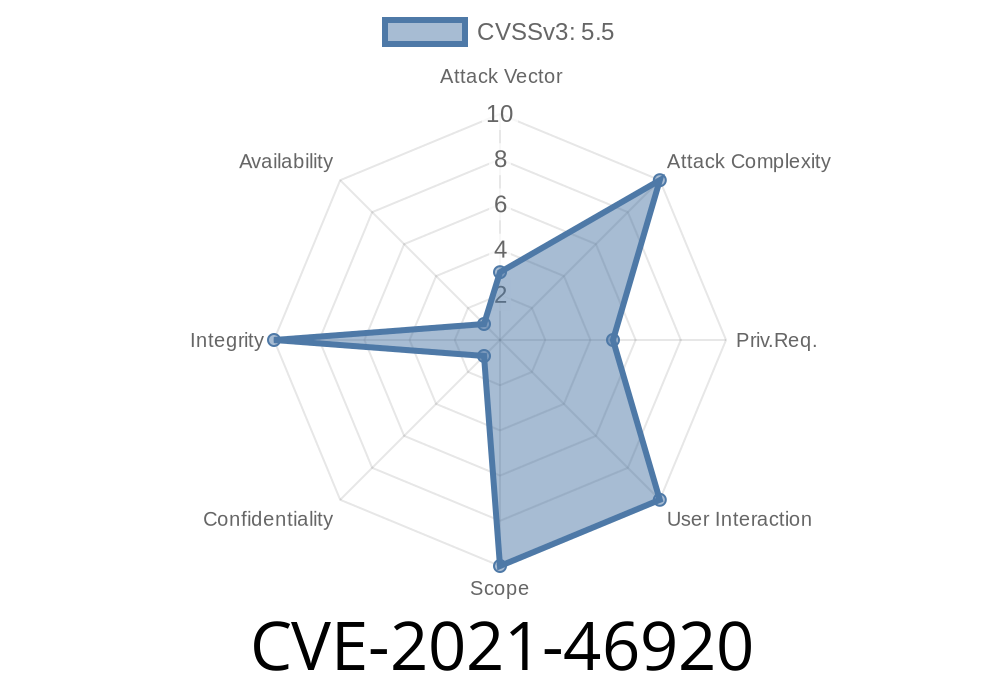In early 2021, a subtle yet significant vulnerability was found and patched in the Linux kernel’s DMA Engine subsystem, specifically in the Intel Data Streaming Accelerator (IDXD) driver. Tracked as CVE-2021-46920, this flaw involved improper handling of the SWERR (Software Error) and OVERFLOW bits within status registers. The initial code unintentionally clobbered, or overwrote, these important bits, potentially leading to dangerous side effects and system instability. Let's break down what went wrong, examine the patch, and understand how this could have been exploited.
What Is dmaengine and IDXD?
- dmaengine: A Linux kernel subsystem designed to offload data copying and movement tasks for performance and efficiency.
- IDXD: Intel’s Data Streaming Accelerator, a hardware feature for accelerating and managing these data transfer tasks.
The Linux driver for IDXD interacts closely with hardware, keeping track of status and error bits through memory-mapped registers.
OVERFLOW: Indicates that an error queue has overflowed.
Here’s the catch: reading this register clears (acknowledges) the SWERR bit, but the code to write it back didn’t respect the state of the OVERFLOW bit after reading.
The Bad Code (Vulnerable Version)
/* Read register; status can have SWERR, OVERFLOW bits set */
status = readl(register_address);
/* Acknowledge error by writing back */
writel(, register_address); // <-- Bad! OVERFLOW can be lost here
The above snippet would clear *all* bits—including OVERFLOW—even if it wasn’t the intention.
The Fix: Only Clear the Necessary Bits
The secure fix ensures that the driver only acknowledges and clears the bits that it just read. This way, any OVERFLOW bits that are set *after* the read (e.g., a race condition or new error) are _not_ accidentally cleared.
The Patched Code (Fixed Version)
/* Read the status register */
u32 status = readl(register_address);
/* Write back only the bits actually read */
writel(status, register_address); // Only clears bits that need ack
This avoids accidentally wiping out important signals. Simple, but crucial.
Exploit Details: Real-World Impact
While no remote code execution is directly possible, a local attacker (or a buggy application) could exploit this to:
Cause silent data loss or unreliability in applications relying on precise error event notification
Potential scenario:
If a malicious process times repeated triggers just right, it could cause the OVERFLOW bit to set *after* the driver has read the register, but before it writes zero, thus clearing the bit before the event is handled. This "race" abuses clobbering behavior and could cover tracks of misbehavior or degrade reliability.
Who is affected?
Reference Links
- Linux Kernel Commit Fixing the Issue
- NVD Entry for CVE-2021-46920
- IDXD Driver Documentation
- LKML Patch Discussion
Mitigation
Update Now:
If you use the IDXD driver in Linux kernels, upgrade to a version where this patch is included (May 2021 or newer).
Temporary Workaround:
Not practical—kernel patch is the only safe remediation.
Conclusion
CVE-2021-46920 is a classic example of how nuanced mistakes at the kernel and hardware-driver interface—especially with status registers—can ripple out as security or reliability bugs. In this case, a tiny writeback correction removed a subtle loophole that could have been exploited by attackers or hit unsuspecting users with hard-to-diagnose data errors. Modern kernels have this fixed, and all users of the IDXD engine should slack no time in updating.
Stay safe, and always audit how your code reads and writes to hardware registers!
*This post is an exclusive synthesis based on public advisories, kernel documentation, and code review. For questions, drop a comment below or ping your Linux vendor.*
Timeline
Published on: 02/27/2024 07:15:08 UTC
Last modified on: 04/10/2024 14:52:39 UTC
